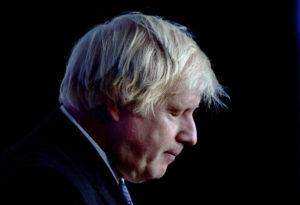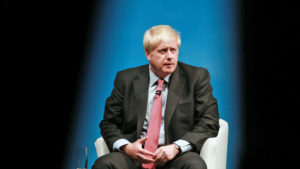The Subscription Rooms in the centre of Stroud have long played host to small historic moments. In March 1962, the Georgian building hosted one of the first Beatles concerts. The band were paid £32 between them. It was one of their “worst ever” performances, Paul McCartney later said. “Stroud was pretty bad. I think about three people showed up.”
Last Thursday, by contrast, around 300 people turned up to the rebranded “Sub Rooms”, when local Labour activists met to choose the candidate they hope will wrest back the surrounding Gloucestershire constituency from the Tories at the next election. After spending three hours considering just two names, they picked Simon Opher, a 55-year-old local GP and the more local applicant. The announcement, as often in these processes, followed weeks of wrangling between the Stroud party and national Labour officials.
Three more Labour selections took place over the weekend, and between now and the next election, hundreds of such meetings will take place in assembly rooms, church halls, schools and pubs all over the country. It’s a process I call “Britain’s Hidden Elections”.
Whereas American parties choose their candidates under the intense public scrutiny of primary elections, Britain’s parliamentary selections are conducted with great secrecy. They are rarely reported on these days; many places don’t have a local paper anymore, while those that do survive don’t regard candidate selections as particularly newsworthy.
Yet they are a vital part of British politics. Local parties aren’t just picking the MPs of tomorrow, but the ministers, Cabinet ministers and whips of future decades — the pool of people from which governments are formed. If parties regularly choose incompetent, lazy and stupid MPs, then weak and inept governments will follow: the sort of governments populated by the likes of Chris Pincher; the sort of governments that make a man accused of sexual misconduct a deputy chief whip. That, ultimately, is why I’ve started a new project to report on the selection process for every candidate who might have a chance of becoming an MP.
Selection for a winnable seat is perhaps the big turning-point in most political careers — the moment when a politician’s ambitions finally take off, often after years of toil: Michael Howard tried more than 30 times to get a seat, over almost 20 years.
These candidate selections are politics in the raw, muscle against muscle — rough, unjust, and undemocratic, with fixes and deals, and interference from the regional or national HQs or the leader’s office. But the beauty is that the interference sometimes backfires. And often these selections see the birth of new stars, young men and women who wow the activists with inspiration and hope: as the 32-year-old Margaret Thatcher did in Finchley in 1958 and the 30-year old Tony Blair in Sedgefield in 1983.
Yet fiddles and chicanery are common. Indeed, at the end of Thatcher’s selection meeting in Finchley, everyone was told she’d won by 46 votes to 43. But she was the unknowing beneficiary of fraud. The local chairman was so impressed by Thatcher that he switched two votes to her, taken from her male opponent, Thomas Langton. Those votes made the difference, and made history. The chairman had justified it to himself on the grounds that, before long, Langton was bound to be chosen elsewhere. He never was.
Luck and accident play their part too. After fighting the Labour stronghold of St Pancras North in both 1974 elections, John Major was determined to stand in a safe Tory seat next time. He made numerous applications only to hear nothing back, apart from unsolicited invitations from Tories in Labour seats he didn’t want. After 18 months of frustration, he discovered Conservative HQ had mixed up his file with another John Major, a GLC councillor from north London. The error was rectified, and the real Major was picked for super-safe Huntingdon. As for the “other” John Major, I tracked him down to a guest house he later ran in Bournemouth, where I filmed him for Newsnight cooking bacon and eggs. “At least someone called John Major became prime minister,” he said cheerfully. “It could have been me.”
Of course, it’s not just the Tories who have cultivated the dark art of murky selections. Dozens of Labour MPs elected in the Blair-Brown era owe their careers to party fixers Tom Watson and Keith Vaz. The pair of them — Watson for the Gordon Brown camp and Vaz for the Blairites — would share out seats between them, in cahoots with the trade unions.
Often they would wait for an election to be imminent, when the party leadership and national HQs can further reduce members’ role in the process — there’s no time to consult about shortlists, they claim. This provides a chance to “parachute” in advisers and favoured sons from outside, often by providing a shortlist with only one realistic capable contender. That’s how the Blairite TV historian Tristram Hunt got Stoke-on-Trent Central in 2010, while Harriet Harman’s late husband Jack Dromey was handed Birmingham Erdington. In 1997, the Labour Party in Dudley had already printed posters for the sitting MP John Gilbert — I spotted them in his agent’s car. But then Blair’s office got Gilbert to step down with the promise not just of a peerage but a ministerial job too.
For party activists, the power to pick the parliamentary candidate every now and then is one of the few perks. Why do all the slogging on the streets if you’re going to have a candidate foisted upon you by some national deal or fix? Leaving the choice entirely to local members is surely the democratic ideal. Yet the trouble is that increasingly local members insist on local candidates — people brought up in the area, and familiar with its problems. Often this takes the form of choosing members of the local council, especially Labour and the Liberal Democrats.
But the truth is that former councillors, especially council leaders, rarely flourish in Westminster and Whitehall. Herbert Morrison and David Blunkett are the major exceptions of the last 100 years. Graham Stringer and Jon Trickett, for example, ran big city councils in Manchester and Leeds for a decade each, yet have hardly enjoyed dazzling Commons careers. On the whole, councillors don’t make great statesmen — people who are interested in the big issues of national importance: foreign policy, defence and the economy.
And if voters and activists had insisted on every candidate in the past being “local” then Margaret Thatcher would never have got Finchley, and Tony Blair would never have stood for Sedgefield in County Durham. Today, Keir Starmer might be confined to fighting his home patch in Tory East Surrey.
As pitiless as it sounds, party leaders and their officials sometimes need the power to slot the best and the brightest into safe seats. And Starmer himself seems already to be doing that. On the morning of Labour’s selection in Stroud last week, the popular Labour leader of the local district council, Doina Cornell, dramatically resigned from the party over the way she’d been excluded by national officials from the selection shortlist over various alleged transgressions on social media. The offences seem pretty minor, and one suspects the motive of party bigwigs was to limit the Stroud shortlist to two names who looked like potential future ministers. Certainly, the GP who won the Stroud nomination looks a possible health minister in a Starmer administration.
Meanwhile, the case of the government deputy chief whip Chris Pincher, who resigned over his excessive drunkenness in the Carlton Club on Wednesday night, and amid allegations that he groped two male members of the staff in the club, shows the urgent need for wider public and media scrutiny of candidate selections. More MPs have gone to jail in the last two decades — for dishonesty over their expenses, for perjury, and for sexual offences — than at any time in the last 200 years.
In May the former Conservative MP for Wakefield Imran Ahmad Khan was jailed for groping a 15-year-old. Former MP Charlie Elphicke was imprisoned for two years for three sexual assaults, while his former colleague Andrew Griffiths was found by a court to have repeatedly raped his wife. The Somerset MP David Warburton faces allegations of harassment and drug abuse.
On the Labour side, Fiona Onasanya was jailed for perverting the course of justice, and Claudia Webbe convicted of harassment, while former MP Jared O’Mara still faces several fraud charges. And last Thursday, the former SNP MP Natalie McGarry was jailed for two years for embezzling nearly £25,000 from two campaign groups.
Perhaps if our political parties, activists, journalists and the public had paid more attention to who was being picked to represent us, we might have been spared some of these scandals. Voters deserve better than the likes of Pincher, Elphicke and the rest of their disgraced colleagues. Of course, we have the right to be angry when they’re caught out. But the truth is they should never have been picked in the first place.
Disclaimer
Some of the posts we share are controversial and we do not necessarily agree with them in the whole extend. Sometimes we agree with the content or part of it but we do not agree with the narration or language. Nevertheless we find them somehow interesting, valuable and/or informative or we share them, because we strongly believe in freedom of speech, free press and journalism. We strongly encourage you to have a critical approach to all the content, do your own research and analysis to build your own opinion.
We would be glad to have your feedback.
Source: UnHerd Read the original article here: https://unherd.com




